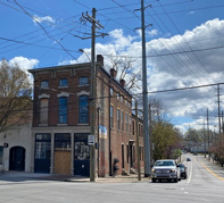
A century ago, urban neighborhoods were filled with corner stores within walking distance of residents. Today, planners in cities as diverse as Seattle and Spokane, WA, and Auburn, ME, are working to bring grocery stores back to downtown neighborhoods.
Corner stores “support a lot of great things that we also support, like compact growth, transportation options, socializing with neighbors and friends, and even food security,” says Lisa Pool, a planner and public policy consultant at the Municipal Research and Services Center in Seattle.
But in the U.S., small shops and cafes are generally barred from residential neighborhoods.
The August issue of Downtown Idea Exchange reports on some of the creative techniques cities are using to replace neighborhood grocery stores.
For example, Spokane, WA, helped launch the move to restore neighborhood retail in 2017 with a code change that legalized historic store locations, despite conflicting contemporary regulatory barriers. From there, the city is looking to slowly add more stores in new locations.
More on downtown economic development appears regularly in the pages of Downtown Idea Exchange newsletter.
Click below to learn more about Downtown Idea Exchange and other resources for revitalizing downtowns and commercial corridors.


